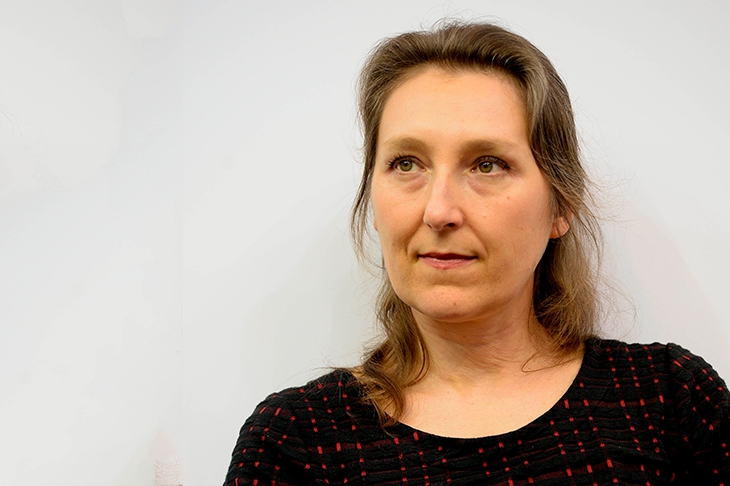‘We should be living in a brave country and on a brave planet that bravely distributes its occupants,’ thinks Rose Goyenetche, a middle-class, middle-aged Parisian child psychologist and the heroine of Marie Darrieussecq’s Crossed Lines.
As their hands touch, Rose feels a familiar electric ping, and their futures become linked
The story unfolds on a Mediterranean cruise ship, where Rose is holidaying in a deluxe cabin (‘that is, economy class’) on an all-inclusive-without-alcohol-without-wifi package sponsored by her mother as a chance for Rose to get some perspective on her life. When the ship comes across a rickety boat full of refugees who are taken aboard, Rose gives a young Nigerien (not Nigerian) boy named Younès her son’s phone (she needs hers for professional reasons). As their hands touch, she feels a familiar electric ping of friction, and from this point, their futures become linked.
Darrieussecq’s descriptions are precise and startling and her observations penetrating. The Gare de Lyon, with its ‘intersecting escalators’, becomes a place where ‘passengers distribute themselves rapidly and methodically from one place to another’, not ‘ugly’, but ‘efficient’. ‘She has the impression the station is going to fold itself over her like a giant envelope and post her somewhere — off you go!’ Rose, too, sees herself as a migrant in some sense of the word as she grapples with her move from her unsustainable life in Paris back to the Basque country of her girlhood, steering her relationships with her children — moody, bright Gabriel, and Emma, a sensitive daydreamer who suffers from strange allergies. Then there is her husband, an idealistic estate agent forced to sell tiny apartments that are haunted by stories of murder and violence. He sometimes drinks too much and Rose fantasises about leaving.
In a slightly mawkish parallel to real life, earlier this year Darrieussecq was criticised for the bobo (bourgeois-bohème) quarantine diaries where she detailed her own retreat from Paris to her large family home in the Basque country. Rose’s maternal instinct ‘to take charge of his [Younès’s] life, fill out his application for asylum, write his story’ is misguided too, and on some level she knows this. But the act of witnessing his story is important nonetheless, and in the course of the novel, Younès becomes a witness to Rose’s. Their relationship is mysterious, charged and inevitably shadowy, since it is told from Rose’s perspective.
Perhaps it is not so much that Rose is a heroine, then, though she does tap into some kooky holistic powers, transmitting waves and vibrations that guide Younès towards his destiny. Rather, it seems for Darrieussecq to devote attention to the question of migration, exile and the figure of the refugee is significant in unlocking more questions for the reader.





Comments